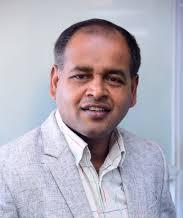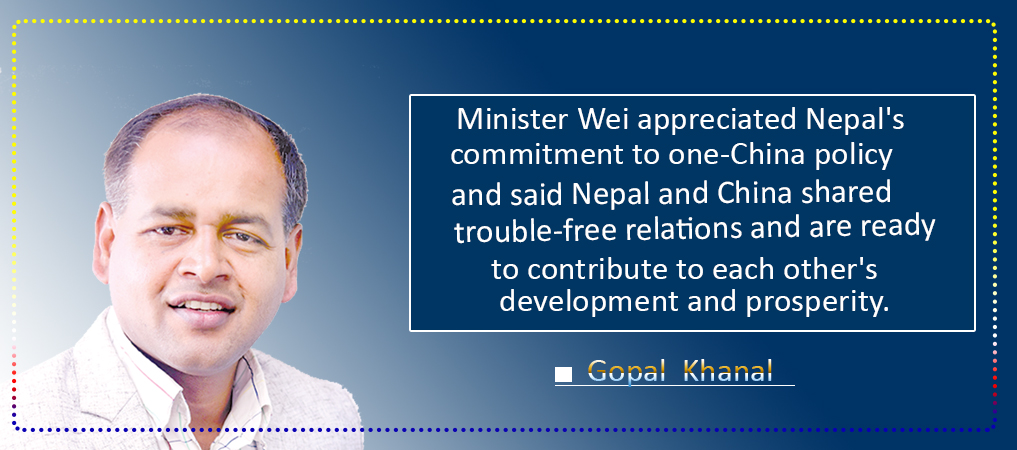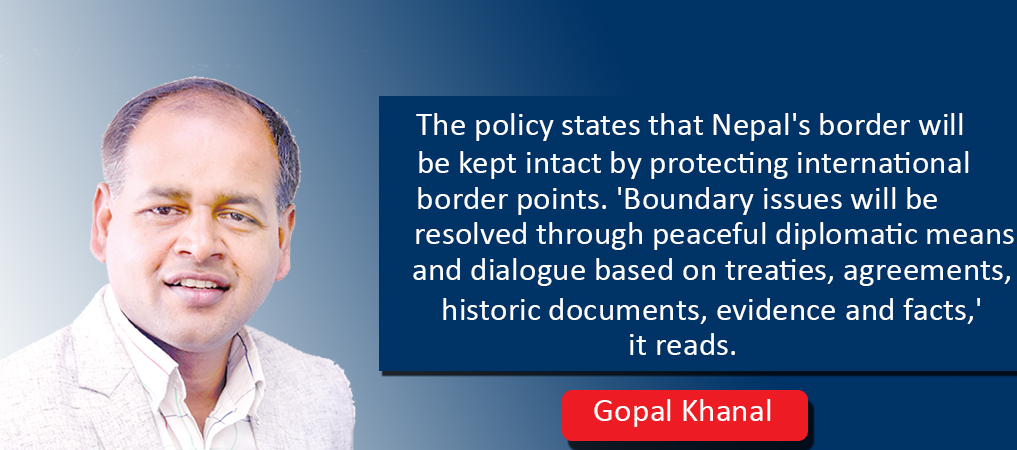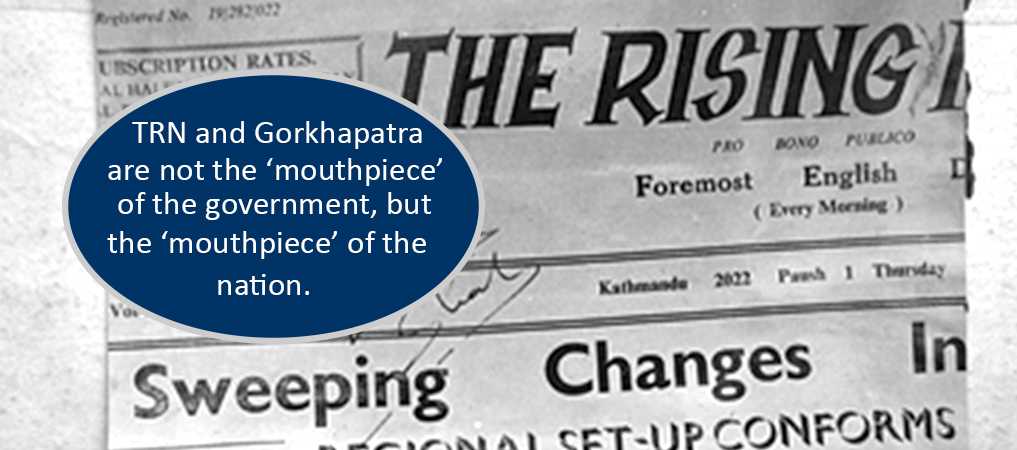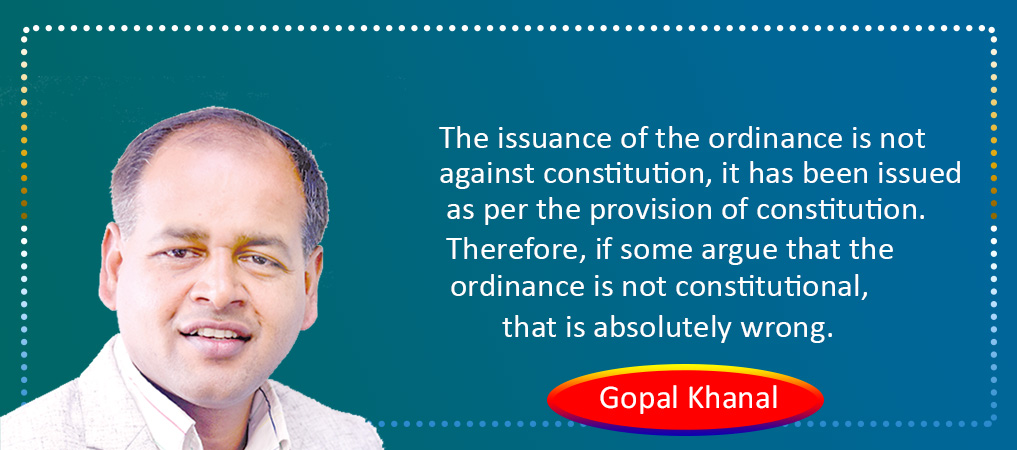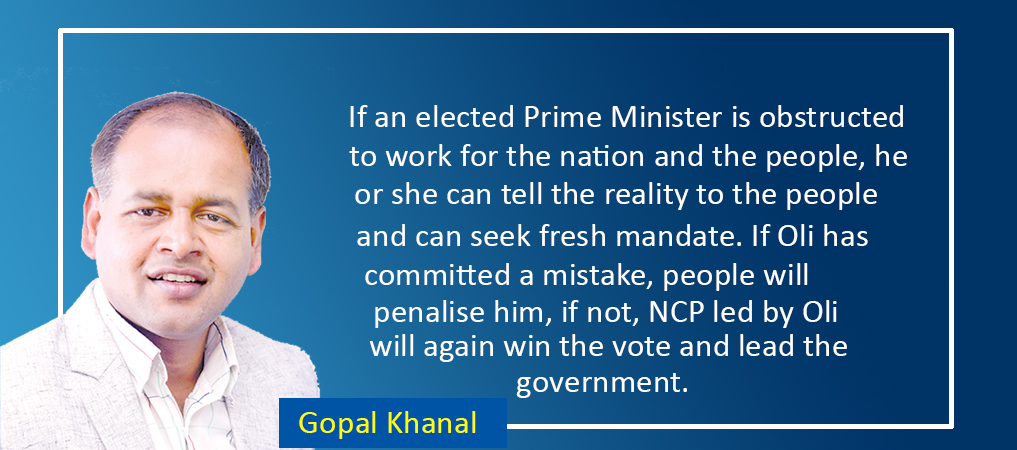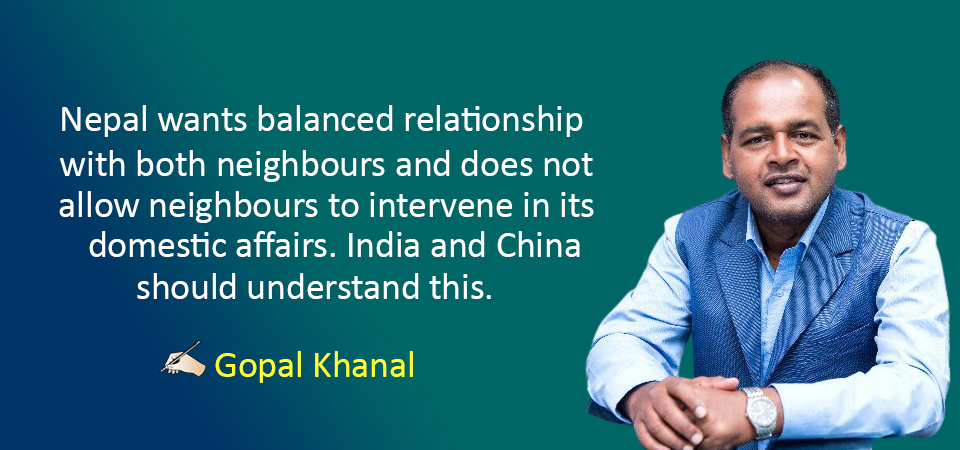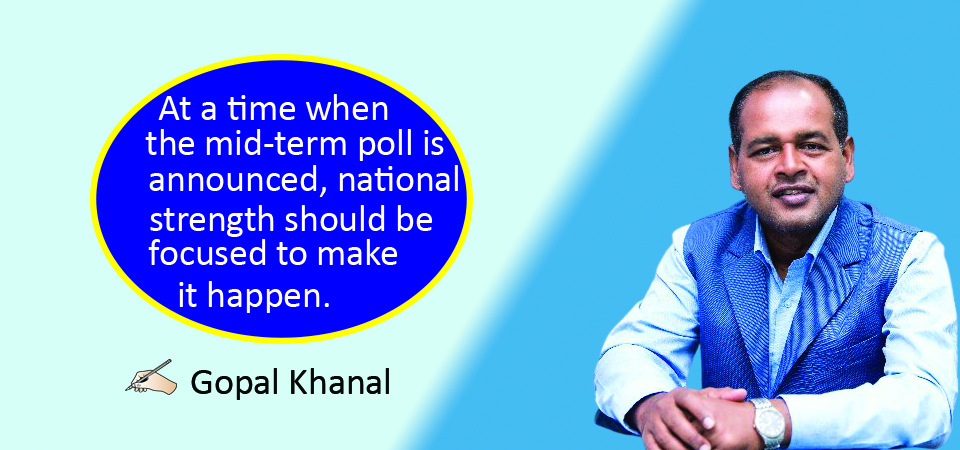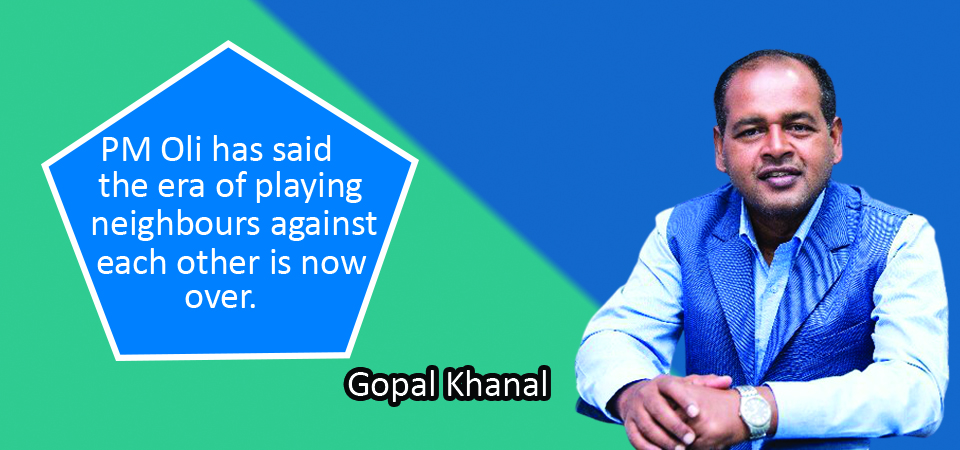Strange Bedfellows, Baseless Allegations

Gopal Khanal
IT was a foreknown fact. The arithmetic of the House of Representative (HoR) was against Prime Minister Oli since some of his own party’s parliamentarians, led by Madhav Kumar Nepal, were not in his favour. They had pulled their weight to unseat him at all cost.
Therefore, as anticipated, PM Oli could not win the trust of vote in HoR. Subsequently, President Bidya Devi Bhandari on 10 May called the political parties to form the government under Article 76 (2) of the constitution. This Article mentions about the formation of a coalition government.
Hence, the major parties have begun doing their homework to garner the support of required number of lawmakers to constitute the new government. Leader of the main opposition, Nepali Congress, Sher Bahadur Deuba on 11 May held a meeting with Pushpa Kamal Dahal Prachanda of the CPN-Maoist Centre and Upendra Yadav of the Janata Samajbadi Party (JSP), but the meeting remained inconclusive largely owing to the division in the JSP over the formation of the new government.
Deuba, immediately after the meeting with Prachanda and Yadav, called the meeting of office bearers of his party, in which he shared the tricky situation in forming an alternative government under his leadership. Deuba said unless a unified JSP extends support to Nepali Congress, he could not form government. He was of the view that Madhav Nepal and other UML leaders could not be fully trusted.
It is up to the parties what kind of government they want to form. Who will lead the next government? Will Oli continue to lead the government till the next election? The parties should reach a conclusion by evening of 13 May. Here I am not pondering over above questions. Instead I tried to clarify some misleading statements of Deuba and Prachanda on the government’s foreign policy and relations they made during the meeting of HoR.
False claims
Deuba and Prachanda, while speaking in the parliament on motion of vote of trust, blamed Prime Minister Oli for mishandling the foreign relations with special reference to India and China. But, they didn't present the evidences to prove the claim.
They alleged that the Prime Minister failed to deal with neighbours in a balanced manner. They claimed Nepal's international relations further worsened during the last three years. These arguments are not based on fact. Foreign policy and relations are very sensitive issues and these should be dealt with enough sensitivity. One cannot make comments on them in a flippant manner.
Were there any problems of Nepal with India and China during these three years of Oli’s premiership? Can Deuba and Prachanda point out where Nepal has lost balance in dealing with these neighbours? Have the establishments of India and China expressed anything that might indicate the imbalance ties? No.
There is a saying that there are no permanent foes and permanent friends but permanent interest. It applies to both realms – politics and foreign policy. In the current world order, permanent interest is on the top of all.
India and China have their own interest in Nepal; they try to fulfill their interest, too. Have Nepal allowed them to play their role in the domestic affairs of Nepal? Can any current leader of Nepal say that India and China have influenced the Nepali stakeholders to serve their interest? No.
Such was a time in the tenure of previous governments in the critical juncture of establishing and overthrowing the political systems. After the promulgation of the new constitution in 2015, Nepal has been deciding its domestic affairs on its own by putting its national interest above everything else. If one observes the major moves of the Nepal during these five years of post-constitution, the reality comes to the fore.
Some may forget many things that this government has done. But, none could overlook its specific achievements. Politics can be done for the sake of politics. But facts tell otherwise.
Let's look at two developments. Until the promulgation of constitution, Nepal had been considered as largely dependent on its neighbours, be in the crucial decisions on domestic affairs or on the financial support. From the time of blockade to the issuance of new map incorporating Limpiyadhura, Lipulek and Kalapani areas in west Nepal, the country has shown its domestic strength. Nepali political parties have exercised their autonomy and taken independent decisions.
Have we heard any grievances of India and China on the decision we have taken in protecting our national interest? No. It is because Prime Minister Oli has given a message that he won't compromise national interest and he won't allow neighbours to intervene in the internal affairs of Nepal. And, he has not sought unnecessary support of them and he doesn't want to be in the good books of India and China for fulfilling their interests, leaving Nepal's priorities aside. Whatever he has done, he has done with grit and resolution.
Equal sovereignty
Prime Minister Oli has maintained friendly relations with Prime Minister Narendra Modi and Chinese President Xi Jinping on the basis of equal sovereignty. Just observe the current pragmatic policy deployed by Prime Minister on fighting against the COVID-19 global pandemic.
Prime Minister Oli appealed to India, China and international community to provide essential medical supplies to fight against the pandemic. Nepal received 400 oxygen cylinders and 10 ventilators from China under its aid on 11 May. Similarly, Bangladesh provided Remdesivir and other essential drugs to Nepal. India has been providing vaccines and other important drugs despite the fact that it has been fighting this pandemic amidst the shortage of required medical resources.
Global pandemic has caused sufferings on a global scale. In the hardest time of ordeal, adversaries come. In such time, national and international unity is a must. Prime Minister Oli has accomplished scores of works, which have made Nepal to be heard and seen on international arena. He has boosted image of Nepal. Despite this, parties can seek alternative of him with due process. But, politics of strange bedfellows won't lead towards betterment of the country.
All should abide by the party’s official line so as to promote morality in politics and find a democratic solution to the crisis no matter how formidable it is.
(Khanal is consulting editor at Gorkhapatra Corporation. khanalbro@gmail.com)
Recent News

Do not make expressions casting dout on election: EC
14 Apr, 2022
CM Bhatta says may New Year 2079 BS inspire positive thinking
14 Apr, 2022
Three new cases, 44 recoveries in 24 hours
14 Apr, 2022
689 climbers of 84 teams so far acquire permits for climbing various peaks this spring season
14 Apr, 2022
How the rising cost of living crisis is impacting Nepal
14 Apr, 2022
US military confirms an interstellar meteor collided with Earth
14 Apr, 2022
Valneva Covid vaccine approved for use in UK
14 Apr, 2022
Chair Prachanda highlights need of unity among Maoist, Communist forces
14 Apr, 2022
Ranbir Kapoor and Alia Bhatt: Bollywood toasts star couple on wedding
14 Apr, 2022
President Bhandari confers decorations (Photo Feature)
14 Apr, 2022



